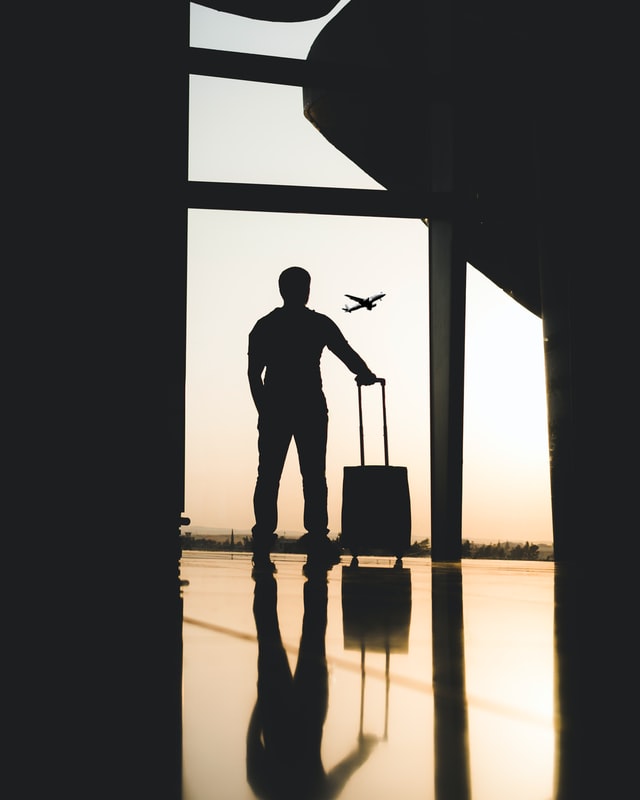
30th November 2020
It has certainly been a challenging few months for recruitment agencies that place contractors overseas, with the global pandemic impacting everyone. The ever-shifting set of local and regional travel restrictions can make it difficult to know which locations people are permitted to travel to, let alone work in the country.
While we advise any recruitment business to check the latest information before they intend to put a contractor forward for a position, in this latest blog, we provide updates on a variety of travel bans around the world and changes to a number of travel restrictions that have recently been announced.
(Note, this information is from Schengen Visa Information and is correct as of 27th November.)
Iceland exempts COVID-19 ‘survivors’ from border restrictions
Iceland’s government has announced that it will keep its current border restrictions -designed to prevent the spread of COVID-19 in the country – in place until 1st February 2021. Visitors to the destination currently have two choices:
- Spend two weeks in quarantine on arrival in the country
- Undergo a double screening procedure involving a test at the border and a second test after five days of self-isolation
However, from 10th December 2020, visitors entering the country will be allowed to travel freely, provided they can produce official documentation proving they have recovered from the disease.
The policy change comes following substantial accumulating evidence that people who have already had Coronavirus are immune and no longer vectors of the disease.
Iceland’s Ministry of Health has also announced that it wants to replace current quarantine rules with free COVID-19 tests to enable the tourist economy to recover next year.
Commuters from Sweden And Finland now exempt from Norway’s quarantine rules
Norway’s government has announced that commuters arriving from Sweden and Finland will no longer have to follow its quarantine rules, so long as they don’t enter the country more than once every fifteen days.
According to Schengen Visa Info, the move will benefit workers entering the country who do not work every day – news that will certainly be welcome to some contractors employed on projects in the location.
However, Norway continues to maintain an extensive list of high-risk countries and recruitment firms are advised to check this list if placing contract staff in the country. Where travel is allowed, individuals must present a negative PCR test on arrival.
Mandatory quarantine for travellers from several countries imposed in Lithuania
Lithuania is currently experiencing a peak in the number of coronavirus cases as part of the second wave that is engulfing the continent. The European Centre for Disease Prevention has now earmarked the country as “red,” meaning that it is now a high-risk place to travel.
In response, Lithuania has updated its rules and now requires many travellers to self-isolate on arrival.
Those arriving in the Baltic state from Switzerland, Liechtenstein, Scotland, Wales, and Northern Ireland must now quarantine themselves for ten days or present a negative COVID-19 test taken in the preceding 48 hours before arrival. The only travellers exempt from the rules are those who did not leave airports in those countries as part of their journey.
Several destinations are now no longer required to present tests for mutated coronavirus strains from mink farms on arrival in Lithuania. Sweden, USA, Netherlands, Spain, Italy and Denmark are now exempt from the rules.
Germany removes Iceland from list of high-risk countries
The European Centre for Disease Prevention continues to update its map of coronavirus hotspots, tracking the spread of the disease across member states, in order to support international public health response efforts. This week saw the agency reduce the risk level for Iceland following reports suggesting the infection rates in the destination are improving. However, levels for Lithuania and Latvia have increased, resulting in tighter restrictions being implemented for travellers from these locations.
Anybody who spent time in either of the latter two countries in the preceding ten-day period will need to quarantine in Germany for ten days on arrival. The same international travel restrictions apply to people arriving from Central Greece and Finland’s Uusimaa region.
New arrivals in Germany can reduce the length of their quarantine by submitting to a COVID-19 test. However, they will still have to self-isolate for a minimum of five days following the test.
When it comes to international recruitment, Germany is still insisting that travellers register on the Digital Registration on Entry website before they arrive and have proof of registration on their person when entering the country. This obligation has been in place since 8th November 2020 and, if not adhered to, could result in individuals being turned away at the border.
Germany’s list of high-risk countries currently includes Belgium, Bulgaria, Cyprus, Croatia, Denmark, Estonia, Finland, France, Greece, Ireland, Italy, Latvia (since 22nd November 2020), Liechtenstein, Lithuania (since 22nd November 2020), Luxembourg, Monaco, Netherlands, Norway, parts of Austria, Portugal, Romania, Spain, Czech Republic, Hungary and the UK.
International recruitment travel updates – don’t forget about compliance
While the above provides an insight into the latest travel updates that could impact international recruitment businesses, there’s one topic that should form a crucial part of all of your contractor placement activity: compliance. Nuances in local, regional and global tax regulations can present an administrative headache for staffing companies – but with international contract opportunities on the up, lucrative business opportunities are rife.
Contact our team today find out how we can help you.

